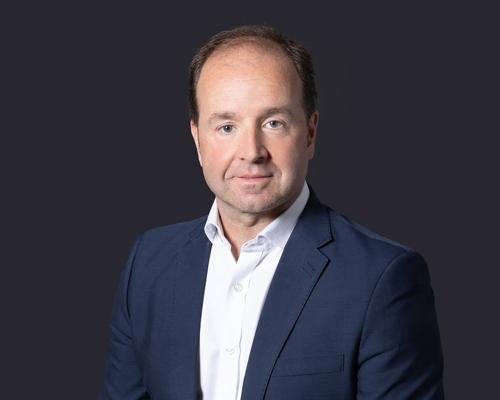
Counter fraud for insurance
Fraud can affect any business or organisation. Insurers often cover such losses but many are self-insured. We represent insurers, businesses, public sector bodies and intermediaries in investigating, defending and prosecuting fraudulent claims.
We combine our legal expertise with in-house intelligence capability and the forensic know-how of trusted specialists. We advise insurers on policy coverage and validate suspect claims, but where fraud is identified, robustly challenge and defend claims, through litigation where necessary.
Our success lies in our tried and tested strategy, which leads to early strike out, discontinuances, or findings of fundamental dishonesty saving clients millions of pounds and allowing them to recover their costs.
Where insurers’ decisions are challenged through the Financial Ombudsman Service we assist and represent insurers’ interests in defending their decisions.
Where claimants don’t recognise the error of their ways, prosecution is the only deterrent. We’ve secured the convictions of many parties who have abused the court process to further their false and misleading claims, leading to prison sentences, criminal records and significant costs orders.
We operate nationally across all five UK offices and have experience in fraudulent claims including financial loss, cyber-attacks, arson, theft, property damage, clinical negligence and personal injury.
What we do
- Expert insurance lawyers – we advise on financial loss (including property damage, theft and arson) claims as well as grossly exaggerated or fraudulent claims for personal injury and clinical negligence. Our work covers defending complex fraud rings, staged, induced and bogus accidents and financial claims fraud and advising on policy indemnity in first party commercial claims.
- Intelligence professionals – our work is underpinned by specialist investigatory resources and leading intelligence professionals.
- Our Intercept counter fraud products - our range of counter fraud products offers a fixed fee bespoke fraud investigation and validation service. It allows clients to investigate suspicious activity and identify key protagonists, linked parties and location of assets.
- Protecting your assets - we investigate fraud losses, and secure recovery of assets and investigation costs through enforcement; and in litigation defend robustly all tainted or suspected fraudulent claims, and secure and recover assets and costs.
- Full counter fraud solution - we manage all matters for clients which include investigations, deterrence and disruption measures with police and enforcement agencies, asset recovery, enforcement and prosecution.
Featured experience
Successfully identified a fraud ring operation
Successfully identified a fraud ring operation arising out of motor trade policies. Including fictitious and staged accidents multiple parties orchestrated in significant value claims and peripheral alleged financial losses in the credit hire and vehicle loss and damage claims. Our fraud intelligence and background investigations defined a fraud strategy which following litigation in all cases, closed down the fraud operation and businesses concerned.
Pre-trial discontinuances
Secured pre-trial discontinuances on employers’ liability and public liability claims based on evidence obtained in questions to experts and through disclosure applications which were originally resisted.
Third party costs order
Secured a third party costs order against a law firm which handled false claims, and was accused of forging medical reports and perverting the course of justice.
High-value vehicle theft claim
Defended a challenge to repudiation by insurer of a high-value vehicle theft claim with the Financial Ombudsman leading to significant savings.
Related expertise
Key contacts

Paul Wainwright
Partner

Herjit Khinda
Legal Director

Lucy Rhymaun
Lead Intelligence Analyst
You may be interested in...
Legal Update
FCA’s anticipated priorities for the insurance market
Legal Update
The AI arms race: Fraudsters vs insurers in the battle against fake claims
Legal Update
Addressing insurance fraud: Aviva's response and industry-wide implications
Legal Update - Economic Crime and Corporate Transparency Act
How universities can navigate the new 'failure to prevent fraud' offence
Legal Update
AI is creating fraudulent claims
Legal Update
Carbon fraud prompts insurance response
Legal Update
Romance fraud, online scams and cyber fraud: How banks are now protecting your money
Legal Update
Will the Online Safety Act help reduce Google ad spoofing in insurance?
Legal Update
Court of Appeal upholds decision on professional indemnity policy exclusions in insurer's appeal
Legal Update
The EU AI Act: What does it mean for insurers?
Legal Update
FCA writes to MPs over car insurance premiums. What do increases mean for fraud?
Legal Update
The Home Affairs Committee launched another inquiry into fraud - Stop! Think Fraud
Legal Update
The downfall of Vesttoo: Fraudulent letters of credit
Opinion - Economic Crime and Corporate Transparency Act
New fraud offence to be introduced in the new Economic Crime and Corporate Transparency Bill
Legal Update
Economic crime and cybercrime
It is clear that the digital landscape, often termed cyberspace, is a man-made environment, in which human behaviour dominates and where technology both influences and aids our role in it — through the internet, telecoms and networked computer systems, which are often interdependent. The extent to which any organisation is potentially vulnerable to cyber-attack depends on how well these elements are aligned.
Opinion
Lying on your CV – what can possibly go wrong?
The majority of people do not feel the need to embellish their CV to get that coveted position and move on up the career ladder. Their worthiness and benefit to the hiring organisation are easily demonstrated through the recruitment process – application, psychometric testing, selection day or interview.
Legal Update
Integrated Care Boards and preventing NHS fraud – what you need to know and how to achieve it
On 7 July this year, NHS England published its statutory guidance for Integrated Care Boards (ICBs) and with it set out the ICBs’ role and responsibilities and how they should collaborate, interact and carry out their anti-fraud, bribery and corruption functions in concert with NHS England.
Opinion
Payment Fraud landscape shaped by technology in 2021
Payment systems across Europe are under increased pressure to mitigate fraud risks and defend against persistent attacks from enablers using ever more sophisticated and malicious viruses and malware.
Legal Update
Contingent loss in negligence claims
Contingent loss is relevant to limitation; specifically, the date at which a claimant’s cause of action accrues for the purposes of a claim in the tort of negligence (as many claims against professional advisers are framed).
Opinion
SFO fail to secure individual criminal convictions following Deferred Prosecution Agreement
On 16 July 2019 the Serious Fraud Office released details of the Deferred Prosecution Agreement reached with Sarclad Ltd in July 2016.
Press Release
Browne Jacobson successfully advises NHS Resolution on fraud case
In one of the most significant fraud findings for the NHS, Lesley Elder, 51, was handed a 5-month custodial sentence for contempt of court for dishonestly claiming in excess of £2.3 million in compensation.














